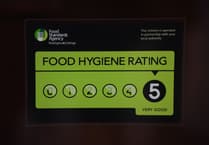Bristol Airport has confirmed that it intends to appeal against North Somerset Council’s decision to refuse its planning application to increase capacity from 10 million to 12 million passengers per year. The decision to refuse the planning application was contrary to the recommendation of the Council’s own planning officers.
The decision on the application will now move to a national level and will be made by an independent planning inspector or, if the appeal is recovered, by the Government.
The plans to expand capacity at the airport will offer passengers more routes and flights from the South West directly, create jobs, facilitate inward investment and inbound tourism, and support greener and more sustainable, regional economic growth. Specific improvements include:
• Extensions to the terminal building, including a new immigration hall
• Ambitious new public transport targets, with new and innovative bus and coach services
across the region
• Improvements to the A38 and the airport’s internal road layout, as part of a multi-million-
pound transport improvement plan
• Construction of a new multi-storey car park and extension of the Silver Zone car parking
• Enhancement of airside infrastructure, including passenger walkways with travellators
The decision to refuse Bristol Airport’s planning application simply exacerbates a situation which already sees millions of passengers drive to London’s airports every year, adding to unnecessary carbon emissions and congestion. This also acts as a barrier for overseas investment into the region.
Bristol Airport’s expansion proposals sit alongside a roadmap which sets out how it will achieve its ambition to become carbon neutral for direct emissions by 2025 and a net zero airport by 2050. A comprehensive package of measures is also proposed to minimise the adverse environmental impacts of an additional 2 million passengers per annum including:
• Developing a Carbon and Climate Change Action Plan to mitigate the carbon emissions associated with an additional 2 million passengers
• A biodiversity management plan to ensure adverse effects on wildlife and habitats are minimised, providing the opportunity to deliver a net gain for local biodiversity
• The provision of on-site renewable energy production
• A significant public transport investment package to encourage sustainable travel
• An Environmental and Amenity Improvement Fund to support a range of measures to
minimise noise impacts, including acoustic fencing
As the aviation industry looks beyond the COVID-19 pandemic, it is imperative that all regions of the country have sufficient infrastructure. The South West has not been at the forefront of transport investment to date and expansion of capacity at Bristol Airport will be a significant step in addressing this disparity. This will benefit the South West’s economy beyond the direct jobs that the project will generate and support the Government’s aim of ‘levelling-up’ economic growth across the United Kingdom by driving economic growth outside the South East of England. Regional aviation will play a crucial role in providing international connectivity when the UK completes its departure from the EU. Expanding capacity at Bristol Airport will offer the opportunity to explore new route development opportunities in the Middle East and North America.
Bristol Airport welcomes the opportunity to commence the appeal process in order to fulfil the ambition of enhancing prosperity in the South West and West of England.
Dave Lees, CEO, Bristol Airport commented:
“Expansion at Bristol Airport will spur growth in the South West and increase the rate at which jobs are created, replacing those lost at the airport during the current crisis. Although demand is temporarily suppressed, it is forecast to return to pre-pandemic levels in the coming years. The sector has been operating at close to capacity for some time and expansion at regional airports will allow growth to benefit all regions across the UK. Approval of Bristol Airport’s planning application will give a much-needed boost to the economy in the West and South West of England and allow exploration of new route development opportunities in the Middle East and North America.
“As the UK completes its departure from the European Union, our international connectivity will become more important than ever. International trade and transport links with our European and global partners will be a huge focus over the coming years. Regional aviation will play a crucial role in the economic recovery from the COVID-19 crisis and in delivering the UK’s global ambitions.”
Deborah Fraser, CBI Director – South West & Regions, said:
“Bristol Airport provides South West businesses with vital access to global growth and essential regional connectivity. Further infrastructure investment can also act as a catalyst for training, jobs and growth, especially given the impact of the current crisis within the aviation sector.
“Longer-term, supporting the airport’s ambitions to achieve carbon neutrality and become net-zero in the years ahead will help contribute to a sustainable recovery from the COVID crisis, helping the UK build back better.”
Miles Morgan, Owner, Miles Morgan Travel said:
“Despite the short term Covid affects, I can only see the demands to travel and travel locally increasing. Bristol Airport needs to forward plan to support and fulfil this demand. This, in turn will provide additional jobs in the local area going forward which will also be great news.”



